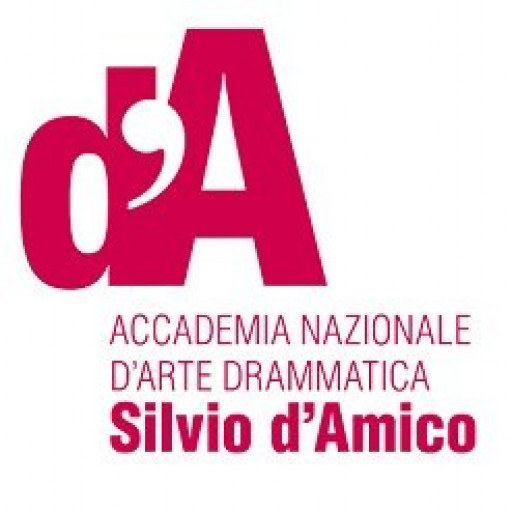Photos of university / #cambridgeuniversity
Cambridge offers the opportunity to pursue doctoral study in a specifically designated programme in Film and Screen Studies. Students on the programme join the active and varied film and screen studies research culture and participate in our annual research seminar series. Opportunities to teach on undergraduate film studies papers are made available to advanced PhD students in their third year. Students also take leading roles in organising research events, including an annual postgraduate conference.
In British universities the PhD (Doctorate of Philosophy) is traditionally awarded solely on the basis of a dissertation, a substantial piece of writing which reports original research into a closely defined area of enquiry. The completion of the PhD dissertation is generally expected to take three years, and most funding is based on this assumption. It's also possible to take a part-time route through research degrees, and the expected timeframe would be five years.
During their research, students will have the opportunity to work closely with a Supervisor who is a specialist in their research area. In addition to the Supervisor, students will normally also be able to draw on the help and support of two other lecturers, who will form part of the supervisory team.
In addition to providing specialist supervision, the Faculty runs a programme of professional training for the benefit of all research students. The programme includes seminars and workshops on library resources, giving conference papers, publishing, applications and interviews, teaching skills, specialist linguistics training, and film-making. The School of Arts and Humanities runs a central programme covering a range of topics from PhD skills training, to language training and writing and editing skills. If you wish, you are likely to be given the opportunity of gaining experience in small group teaching from colleges. There may also be opportunities to gain some experience in language teaching in the Faculty.
| One to one supervision |
Students might reasonably expect to see their supervisor fortnightly or at least three times a term. Supervisors normally take care to provide written comments on written work, and to give constructive criticism; but students should not expect actual marks. There is no need for written work to be provided for every meeting: general discussion and planning is vital, too. The length of a supervision can vary, depending on the stage a student is at and on the nature of the written work, if any, to be discussed. As a rule, however, such meetings generally last between 30 and 60 minutes. Generally, a student should expect approximately 11 hours of supervisions over the course of each academic year. The University of Cambridge publishes an annual Code of Practice which sets out the University’s expectations regarding supervision
|
|---|---|
| Seminars & classes |
Students are encouraged to attend the Cambridge Film and Screen Studies Research Seminars.
|
| Lectures |
Attending lectures is optional but students are encouraged to take advantage of lectures offered across the university which are relevant to their research. |
Feedback
Feedback on progress is provided through regular meetings with the Supervisor. Termly Supervision reports are written and are made available to the student online.
Assessment
Thesis
There is a normal word limit for the thesis of 80,000 words (including footnotes and appendices but excluding bibliography). The thesis should represent a significant contribution to learning through the discovery of new knowledge or through the connection of previously unrelated facts, or the development of new theory, revision of older views or some combination of these. In writing the thesis you are expected to take account of previously published work on the subject and the thesis should be clearly and accurately written, paying due attention to English style and grammar. Candidates for the PhD in Cambridge are guided by a supervisor, though they will normally also discuss their work with a number of other experts in their field.
Following submission of the thesis, an oral (viva) examination is held.
Other
Annual progress interviews for all PhD students should normally take place between the start of the Easter term and the end of the academic year. The annual interviews constitute a system for the formal monitoring by the Degree Committee of the progress of all students working towards a PhD.
Graduate students are admitted in the first instance for a probationary period during which they are not registered as a candidate for the PhD degree. The first-year interview is the context in which registration as a candidate for the PhD is formally considered. Satisfactory progress is a condition for being registered as a doctoral student and for remaining on the register.
- Magistr (Master's Degree) at Pass level. Diploma Specialista (completed post-1991) with a minimum overall grade of good or 4/5 Bachelor's from Moscow Institute of Physics and Technology and other prestigious institutions with an overall grade of 4/5 Bologna Bachelor's from other institutions with an overall grade of 5/5, Excellent
- Diploma Specialista (completed post-1991) with a minimum overall grade of Excellent or 5/5 Bachelor's from Moscow Institute of Physics and Technology and other prestigious institutions with an overall grade of 5/5
- IELTS (Academic) 7.5
- TOEFL Internet Score 110
- £50 application fee
- First Academic Reference
- Second Academic Reference
- Transcript
- Research Proposal. 500-1000 word research proposal written in English
- Sample of Work. A sample of recent research writing of approximately 5,000 - 10,000 words. The sample can be either an essay produced during masters-level studies or a section of a dissertation, and must be a single-authored work.
- Personal Reference
The University of Cambridge offers a range of financial support options for students enrolled in the Film and Screen Studies programme. Tuition fees for UK and international students vary and are subject to annual review; prospective students are advised to consult the official university website for the most current figures. For UK students, tuition fees typically align with those set by the government, while international students pay higher rates. Scholarships and bursaries are available to assist with these costs, including the Cambridge Trusts and specific college-based awards. These financial aid options are competitive and usually require an application alongside the programme application. Students may also explore external funding sources such as government grants, educational loans, and private sponsorships. Additionally, Cambridge provides some limited work opportunities, such as graduate teaching assistantships or research positions, which can offer stipends and help offset expenses. The university encourages applicants to apply early for financial aid and to review eligibility criteria carefully. For students choosing to study abroad, there are specific loans and scholarship programs to support international mobility. Since the programme involves access to costly media equipment and resources, there may be additional costs for materials and licenses, which students should budget for accordingly. The university offers guidance and personalized support through its financial aid office to help students plan their finances effectively. Overall, the university is committed to making Film and Screen Studies accessible by providing a variety of funding avenues, ensuring that talented students can attend regardless of financial background.
The University of Cambridge offers a comprehensive study program in Film and Screen Studies that combines theoretical knowledge with a practical understanding of the moving image. The programme is designed to provide students with a deep historical context as well as critical analysis skills, enabling them to engage with film and screen media from various perspectives. Students explore a wide range of topics including film history, theory, criticism, and contemporary media practices. The programme emphasizes close textual analysis, methodological approaches, and the development of writing and research skills essential for careers in film production, criticism, curation, or further academic research.
Students have opportunities to study classical and modern cinema, including national cinemas and global media trends, while also engaging with digital technologies and new media forms that influence current screen practices. The curriculum is often structured around lectures, seminars, workshops, and film screenings, encouraging active participation and critical discussion. Practical modules may include screenwriting, film editing, and producing, allowing students to gain hands-on experience alongside academic study.
The programme frequently invites visiting filmmakers, industry professionals, and scholars to speak, providing students with insights into the current film landscape. Moreover, collaborations with film festivals and cultural institutions enhance practical exposure. Assessment methods typically include essays, research papers, presentations, and films or screen projects.
A key feature of the Cambridge Film and Screen Studies program is its interdisciplinary approach, encouraging students to relate film to cultural, political, and technological developments. The university’s extensive library and archival resources aid research, and the program often culminates in a dissertation that demonstrates students’ analytical skills and independent research ability. Graduates of the program pursue careers in various fields such as film criticism, curation, academia, media production, and digital entertainment, benefiting from the university’s prestigious reputation and network in the arts and media sectors.








